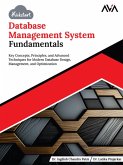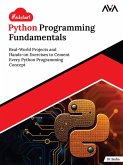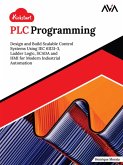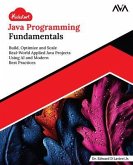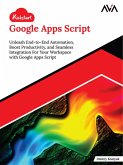Unveiling Compiler Secrets from Source to Execution.
Key Features
¿ Master compiler fundamentals, from lexical analysis to advanced optimization techniques.
¿ Reinforce concepts with practical exercises, projects, and real-world case studies.
¿ Explore LLVM, GCC, and industry-standard optimization methods for efficient code generation.
Book Description
Compilers are the backbone of modern computing, enabling programming languages to power everything from web applications to high-performance systems. Kickstart Compiler Design Fundamentals is the perfect starting point for anyone eager to explore the world of compiler construction.
This book takes a structured, beginner-friendly approach to demystifying core topics such as lexical analysis, syntax parsing, semantic analysis, and code optimization. The chapters follow a progressive learning path, beginning with the basics of function calls, memory management, and instruction selection. As you advance, you'll dive into machine-independent optimizations, register allocation, instruction-level parallelism, and data flow analysis. You'll also explore loop transformations, peephole optimization, and cutting-edge compiler techniques used in real-world frameworks like LLVM and GCC. Each concept is reinforced with hands-on exercises, practical examples, and real-world applications.
What you will learn
¿ Understand core compiler design principles and their real-world applications.
¿ Master lexical analysis, syntax parsing, and semantic processing techniques.
¿ Optimize code using advanced loop transformations and peephole strategies.
Dieser Download kann aus rechtlichen Gründen nur mit Rechnungsadresse in A, B, BG, CY, CZ, D, DK, EW, E, FIN, F, GR, HR, H, IRL, I, LT, L, LR, M, NL, PL, P, R, S, SLO, SK ausgeliefert werden.



